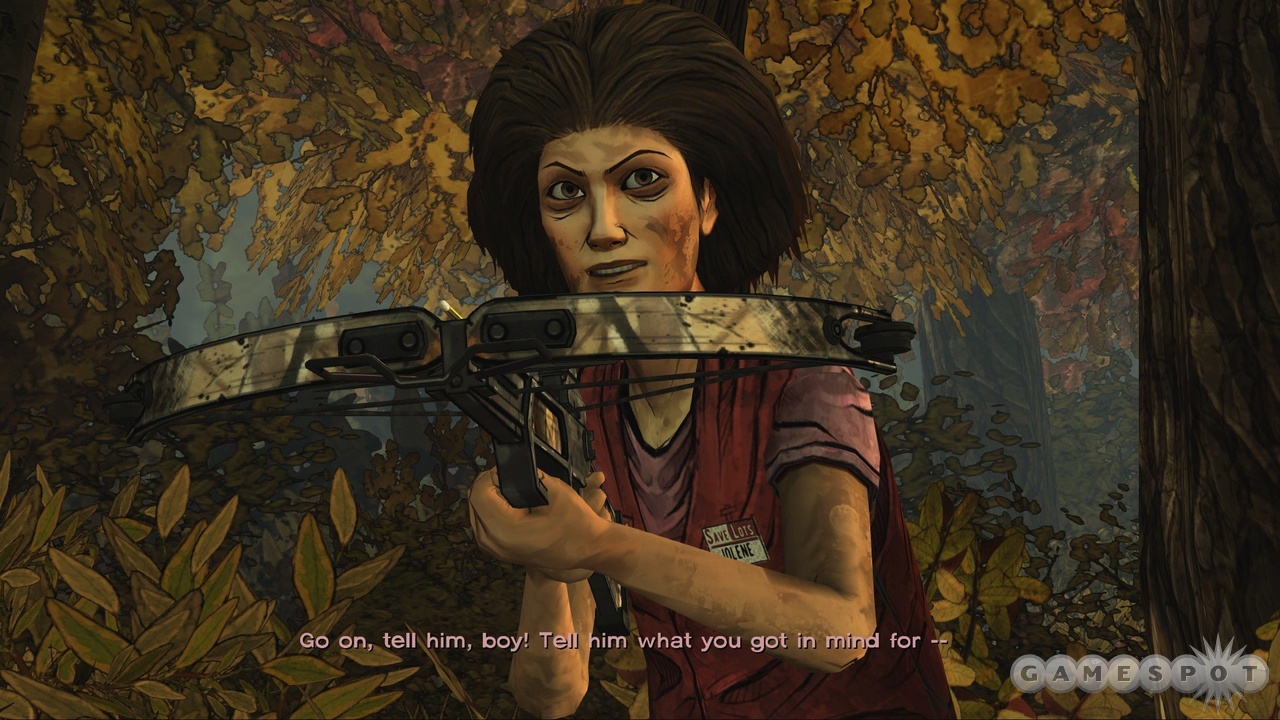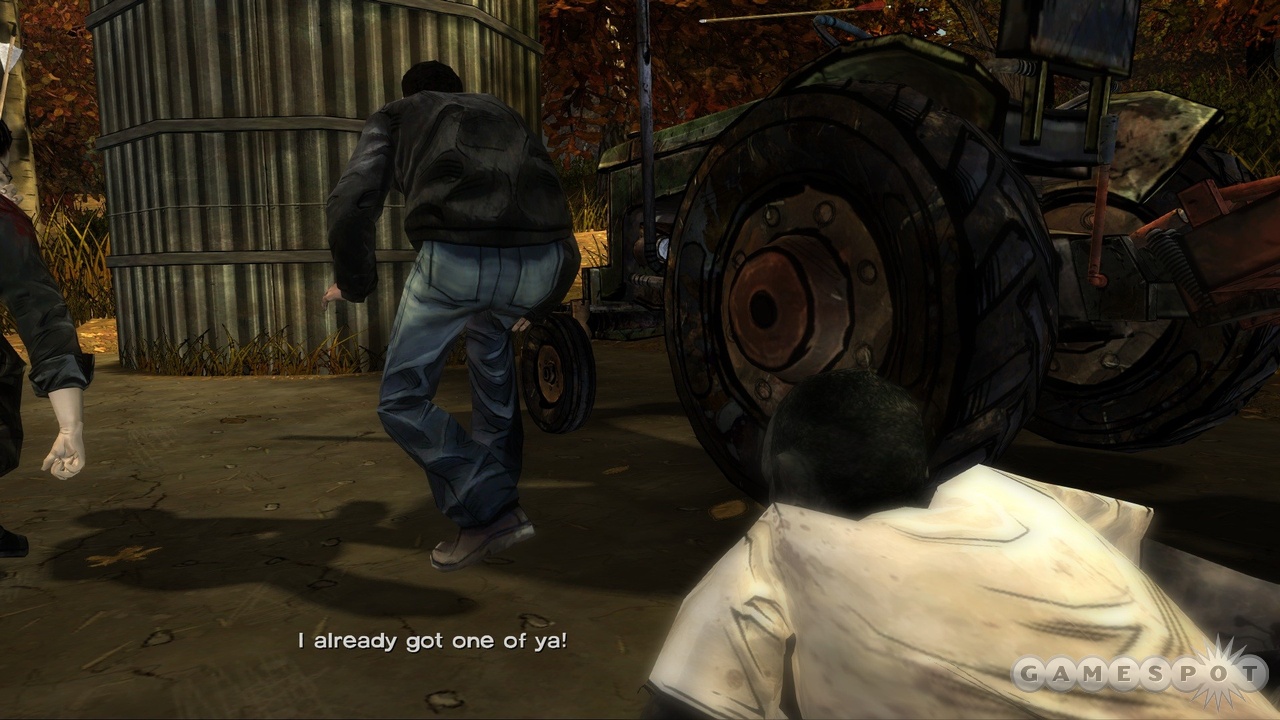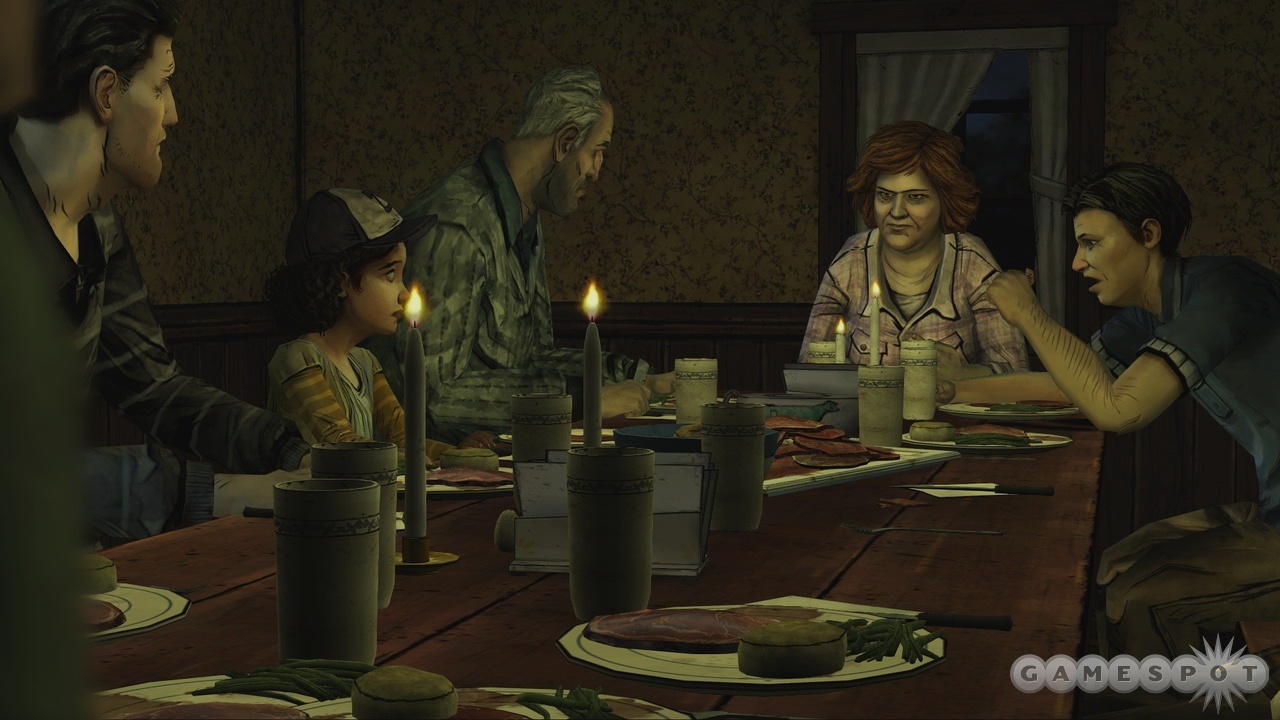Gross-outs combine with a number of disturbing moral choices to create one unsettling game in The Walking Dead: Episode 2: Starved for Help. Telltale Games builds on the intensity of the first episode in this ongoing series, throwing around buckets of blood and adding in some disquieting glimpses of life after the zombie apocalypse. Although fans of Robert Kirkman's comics might recognize plot points lifted directly from the black-and-white series, this is still a gut shot of an adventure sure to keep you creeped out for the three or four hours that it lasts.

Three months have passed since the ragtag group of survivors who came together in Episode 1 first set up shop in a barricaded motel courtyard. Protagonist Lee Everett, a convicted killer freed by a walker on the interstate in the opening moments of the first episode, is in something of an uneasy truce with other members of the gang. Everyone is on edge now, the result of nearly running out of food and having to deal with the argumentative Larry and his headstrong daughter Lily, who has taken it upon herself to lead the group. The story now branches farther away from the comics, taking on more of a life of its own, with nothing like the somewhat cheesy appearance of comics fave Glenn as one of the main characters in the first episode.
Most of the tale focuses on the moral decisions that need to be made due to the harsh realities of life in a world where dead people want to nosh on your brains. The game kicks off with Lee being faced with trying to save a man from a bear trap by hacking off his leg with an axe, and continues through wrenching choices about which members of your party to feed when the rations dwindle to almost nothing and whether or not to kill a bad guy even with a child watching.

Character conflicts are carried over from the first episode, and glimpses of personality traits and potential sore points are brought forward. So it's not a big surprise that Lee runs into big trouble with Larry, or that Kenny remains a coward when called upon to help out a buddy in dire need. The script is excellent. It moves the plot along quickly while also lingering long enough in spots to bring out personalities, such as a telling moment where Kenny assumes that Lee, a black man, would know how to pick a lock because he's "urban." With that said, the main plot leaves a little to be desired. The big secret about sinister dairy farmers holed up behind an electric fence is telegraphed from the moment that Lee and crew set foot on their property, yet the game chugs along as if the source of the family's food supply is an unfathomable mystery. Anyone who has read the Kirkman comics will also recognize elements of this tale from the early issues of the series.
Though the plot is predictable, it is told very well with a supreme ick factor that will leave you shocked and nauseous. The tough choices that you're faced with through action and conversation, along with regular bouts of scrambly quick-time arcade sequences of the same sort as those featured in the first game, thicken an atmosphere of apprehension. There is more depth here than in Episode 1. You take an active role in more situations now and have to think when conversing with characters or committing yourself to courses of action. Where in the last chapter Lee was something of a lone wolf keeping himself apart from his companions due to worries about his criminal past being revealed, here he is a member of a group dealing with stresses like the daily threat from walkers and the ever-present risk of starvation. The sense of a broken moral order hangs over everything and forces you to make choices between actions that can be justified for survival and actions that cross the line into barbarity.

Performance issues that were something of an annoyance on the Xbox 360 version of the game have been cleaned up on PC and PS3. Where the 360 game was rather murky and afflicted by frame-rate hitches just about every time that the scene switched to a new character or new camera angle, neither the PC nor the PS3 editions exhibit these issues. The graphic-novel visuals look fantastic on these platforms and there are no problems with stuttering. Sound syncing errors with the 360 have also been cleared up on the PC and PS3, so lip syncing and atmospheric audio effects are now in time with on-screen animations. Controls can be a bit of an irritant on the PC, though. With the resolution upped to high-res levels, the mouse cursor becomes laggy, which can cause you to get killed during some of the speedier twitch action sequences. This isn't a showstopper, but the mouse could use some fine tuning.
Starved for Help is a great second episode in Telltale's Walking Dead franchise. The story borrows much from the graphic novels and is predictable even if you haven't read them, and the performance issues cause some grief, but this is an excellent adventure that needs to be played by every horror fan. It grosses you out at the same time that it makes you think about the fragile nature of society--and what would happen if everything suddenly broke down and left us scrounging to keep our stomachs full.